We recently assisted a client in protecting its right to maintain its “brand” against a corporation known throughout the world.
Given the disparity between the corporate sizes of our client’s business and of the corporation which was seeking to partially use our client’s registered trademark, it is an opportune time to consider what protection the Trade Marks Act of Australia offers and affords individuals and companies.
So, what is a registered mark or a trademark?
A registered trademark is a sign which helps distinguish a trader’s goods or services from other traders. There are a variety of classes in which a trademark can be registered according to what industry and use the trademark would be seen in.
A registered trademark can help protect and distinguish a brand from other brands in the marketplace, thus becoming a vital component of any effective marketing strategy. In our client’s case, this has proved vital in order for it to maintain its branding and for its clients and the wide public to readily recognize its brand and to be distinguished from other companies and competitors.
In Australia trademark registration is governed by the Trade Marks Act 1995 (Cth) (the Act).
How can you identify a trademark? What is it?
A trademark can be a letter, word, name, signature, number, device, brand, heading, label, ticket, aspect of packaging, shape, colour, sound or scent, or any combination of these. Thus, what you can register as your “mark” is far ranging. A great example the M in McDonalds is so well known and nicknamed the “Golden Arches”. Worldwide it has been trademarked.
The applicable section of the Act is section 6 and section 17.
Why trademark? Why spend the money? What for?
The purpose of registering a trademark for you is:
- ensure that you or your company has the sole right and exclusive use of a brand name and to authorise others to use the registered trademark (which is essential say for franchisees, agents, licensees, and therefore important for franchisors or others to obtain thus to brand and develop their brand);
- create an asset which can be sold; and
- protect against trademark infringement within Australia or a geographical area of the world, in order to maintain a right to promote and be identified as your brand and recognition of the same, which means your business obtains the benefit of this recognition.
When is a trademark infringed?
The Act provides protection for registered trademarks.
If a trademark is unregistered, an individual will have to rely on the common law action of passing off where the elements of it are difficult to establish, rather than having it registered.
Thus, if another party registers your trademark which you may use every day, the only opportunity to deny this party which has registered your trademark, is to go to court. This should be avoided and in the case of Absolute Batteries it was.
Section 120 of the Act outlines three (3) circumstances in which a sign may infringe a registered trademark:
- The sign is substantially identical or deceptively similar;
- The goods or services are closely related or in the same description; and
- The trademark is “well known”.
The sign is substantially identical or deceptively similar
Section 120(1) of the Act states:
A person infringes a registered trademark if the person uses as a trademark a sign that is substantially identical with, or deceptively similar to, the trademark in relation to goods or services in respect of which the trademark is registered.
Parties may try and utilize a similar mark to effectively springboard the use of another trademark to gain or divert business away from the trademark holder. Imagine if a competing restaurant chain utilized the golden arches? In many cases, parties naively start using a mark that resembles another without having any awareness of the impending breach.
Thus, in section 10 of the Act, a sign is considered “deceptively similar” to a registered trademark if it:
so nearly resembles that other trademark that it is likely to deceive or cause confusion.
Determining whether a sign is deceptively similar involves estimating the likely visual impression of the sign and the registered trademark on consumers.[2] Most consumers will remember the general impressions or significant details of the registered trademark or sign.[3]
The goods or services are closely related or in the same description
Section 120(2) of the Act provides that a sign will infringe a registered trade mark when it is substantially identical with or deceptively similar to a registered trade mark in relation to:
- goods or services of the same description of the registered trade mark; or
- goods or services that are closely related to the goods or services of the registered trademark.
We all know about cheap imports or “knock offs” and these terms can be applied to this where goods are similarly manufactured so as to utilize another brand, an example Luis Vuitton bags.
Goods or services need not be registered under the same description for an infringement to occur. However, unlike section 120(1) the sign will not infringe the registered trademark if the goods or services provided under the sign are unlikely to deceive or confuse. The onus is on the defendant to establish that there is no-likelihood of confusion.
The trademark is “well known”
Well known trademarks are afforded greater protection under the Act. Section 120(3) states that a sign may be infringing even if it is not related to the goods or services of the registered trademark if:
- the registered trademark is “well known” in Australia; and
- because the registered trademark is well known, the sign would likely indicate a connection between the goods or services of the sign and the owner of the registered trademark.
Our matter in point is that even if a product is used for a different type of use it will be protected. An example could be that if someone utilized “McDonalds Lawn Mowers”, being that the food retail giant is so well known, this lawn mower trademark if applied for registration, would possibly be rejected on the basis of McDonalds been so well known.
Penalties for trademark infringement
The court may award relief pursuant to section 126 of the Act as follows:
Injunction
The court may grant an injunction, on any conditions the court thinks relevant. Under an injunction the registered trademark infringer will be required to cease using the infringing sign. This speaks for itself; you cannot use a brand similar to another registered one.
Damages or an account of profits
The court may, at the option of the registered trademark owner, grant the registered trademark owner damages or an account of profits.
The registered trademark owner will not be granted damages or an account of profits if:
- the infringer has applied for an order that the registered trademark is removed from the trademark register in respect of the infringing goods and services; and
- the court find that the registered trademark was not used in good faith by the registered trademark owner in relation to those goods and services, during the period the registered trademark was claimed to be infringed.
Penalties for importation
Other penalties under Part 13 of the Act relate to goods imported into Australia which infringe or may appear to infringe a registered trademark. Again, let’s think cheap fag French handbags.
These penalties include the seizure, inspection and recall of goods which bear the infringing trademark.
Please see the following articles relating to recent Trademark work undertaken by SLF Lawyers:
https://www.thechronicle.com.au/news/toowoomba-company-wins-trademark-battle-with-car-g/3924267/
https://www.thechronicle.com.au/news/toowoomba-business-set-for-absolute-fight-with-car/3912748/
We can assist with all your trade mark concerns, registrations, applications, infringements and any Intellectual Property (IP) related matters. If you want to register a trademark, determine if someone has breached yours, or simply seek advice on any aspect of this area of law, please contact our office on 07 3839-8011 or email us on Forlando@slflawyers.com.au.



